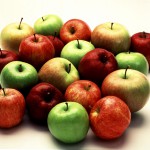Apple shipments fell by 38% and pear sales to Russia fell by 12%. Regional fruit shipments destined for overseas markets reached 273,300 tons on June 15th. The figure represents a fall of 32% compared to consolidated exports for the same period of last year. This was revealed in a recent study, by the North Patagonian port terminal, in which it is detailed that pear sales overseas reached just over 196,300 tons, 27% lower than what was reached in the same season of 2011.
As for apples, the collapse was even greater. Statistics showed that 72,400 tons were exported, 38% less than last year. The data included information about the regional fruit shipments sent only through the port of San Antonio and Bahia Blanca. However, it is noteworthy that these terminals account for 85% of exports to overseas markets.
The report highlights that for Northern Patagonia, Russia remains the main destination of regional export supply. According to the report, shipments to St. Petersburg reached about 108,000 tons of fruit, of which more than 53,000
were for pears and 24,400 apples.
Note that Russia remains an important destination for valley pears. Shipments this year experienced a drop of only 12% compared with the previous year. It must be noted that the average fall for valley pears bound for overseas stood at 27%.
When analyzing the evolution, that the region has undergone in apple sales to Russia, we see that the drop in shipments in this season is close to 50%. An important figure, given the fact that two years ago Russia imported from Argentina
90% of the apples from the Southern Hemisphere. Today that ratio is 50%.
Bahia Blanca´s port regional fruit Shipments reached, so far this year, 11,600 tons (5% of the total overseas sales), reflecting a decrease of 7% compared with records from the previous season.
Source: www.freshplaza.com

